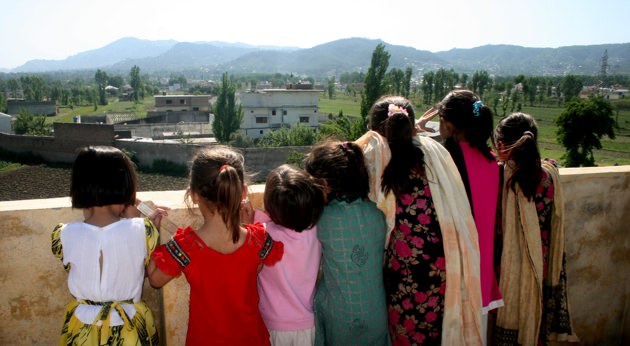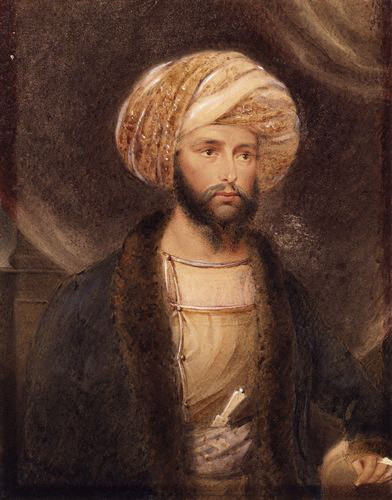Sometime before he left the town that he founded in 1853—and where, a century and a half later, Osama bin Laden was discovered hiding out in a concrete mansion—Major James Abbott wrote the following tribute, which has been called the worst poem ever written:
I remember the day when I first came here
And smelt the sweet Abbottabad airThe trees and ground covered with snow
Gave us indeed a brilliant showTo me the place seemed like a dream
And far ran a lonesome streamThe wind hissed as if welcoming us
The pine swayed creating a lot of fussAnd the tiny cuckoo sang it away
A song very melodious and gayI adored the place from the first sight
And was happy that my coming here was rightAnd eight good years here passed very soon
And we leave you perhaps on a sunny noonOh Abbottabad we are leaving you now
To your natural beauty do I bowPerhaps your winds sound will never reach my ear
My gift for you is a few sad tearsI bid you farewell with a heavy heart
Never from my mind will your memories thwart
Nestled in the Orash Valley and surrounded by the Sarban Hills, Abbottabad is about 4,000 feet above sea level. Today it is practically a suburb of Islamabad, the Pakistani capital, some thirty-five miles away, but during Abbott’s time it became a popular hill station for the British trying to escape the heat of the lowlands. In much of what is now Pakistan the summer temperatures get to be well over a hundred while in Abbottabad, apart from the month of June, temperatures rarely exceed the eighties during the day and fall to the sixties at night.
Abbott had gone to India at age sixteen as a member of the Bengal artillery and made a name for himself on the northwest frontier, which borders Aghanistan. When the Hazra region in which Abbottabad resides became British Abbott was appointed deputy commissioner in 1849. He seems to have named Abbottabad, which he uses in the poem, after himself.
The town was, from its founding, an important military cantonment where the British stationed part of their Nepalese Ghurka force. Like other Indian hill towns such as Darjeeling, it acquired a British flavor which it still had when I visited it in the fall of 1969. I was spending the fall and winter semesters teaching at the university in Islamabad as a Ford Foundation visiting professor. In addition to the nice living quarters in the Ford Foundation staff house, I was provided with a car and driver. I had already spent a month touring the high mountains of northern Pakistan on my own, but I took the opportunity to spend a day or so visiting the hill stations close to Islamabad including Murree and Abbottabad.
There were delightful tea shops and old buildings that dated from the Raj. The views were also quite spectacular. I remember sitting on a hill near Abbottabad with the driver and looking into Indian Kashmir. The heavily disputed border was only twenty or thirty miles away, though it was impossible to tell where it was because the terrain was heavily forested. In 1948 the British Red Cross had opened a hospital in Abbottabad to treat Pakistani casualties from the fighting in the First Kashmir War.
The earthquake of October 8, 2005 destroyed many of Abbottabad’s old buildings. One wonders whether Osama bin Laden was already there or if his mansion, which seems to have been earthquake proof, was still under construction. No doubt Osama also found the cool nights congenial.
That he was hiding in a community that had been created by the British is only one of the situation’s ironies. Another is that the United States contributed fifty million dollars to earthquake aid, some of which went to Abbottabad to reconstruct the hospital. It should not come as a total surprise that Abbottabad had some connection with al-Qaeda. Indeed, as early as 2009, Pakistani officials now claim, astonishingly, that they warned the United States that the compound might be housing bin Laden—though if this was the case, why Pakistan itself didn’t do anything about it is a mystery. On January 25, 2011, the Pakistanis also arrested one of the most-wanted Indonesian terror suspects, Umar Patek, in the town. He had a price on his head of a million US dollars.



